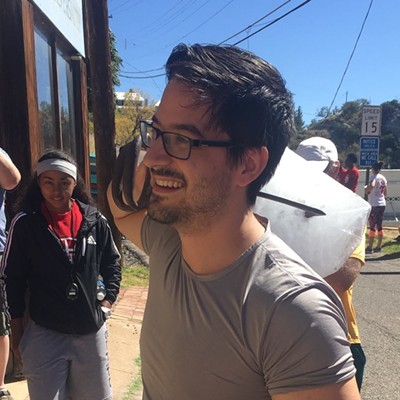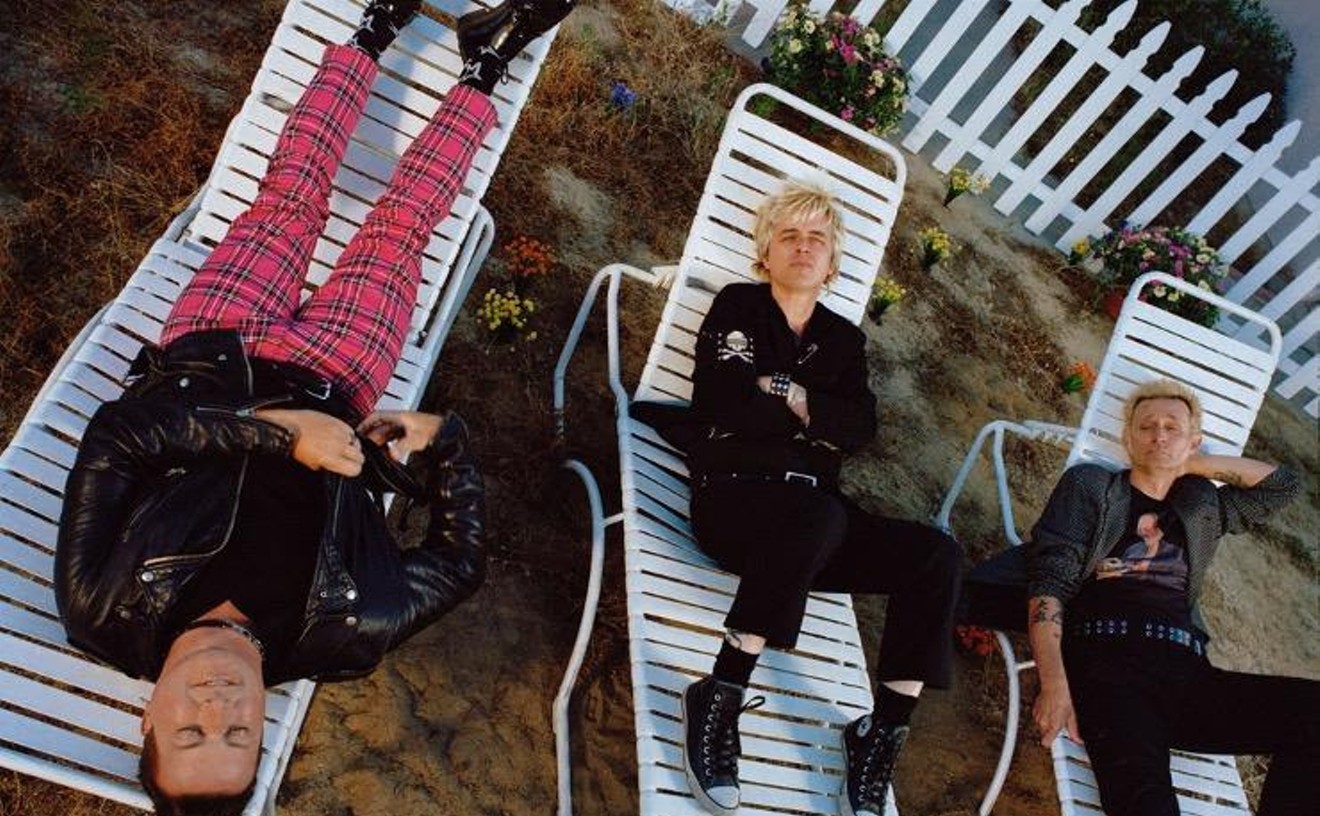Jerry Lawson has led a long, full life. At 71, the soul singer with a voice that could make a blind man see has released 24 albums with his a cappella group the Persuasions, appeared on national television, rubbed elbows with some of the greatest singers in history, got drunk, got sober, and, now, finally, released a solo album. For decades, he and his four pals from Brooklyn trekked around the country, until he called it quits with the group in 2003 and moved with his wife to Arizona. Now a Phoenix resident, he finds himself talking to a reporter in a Village Inn on the north side of the city, recalling how the Persuasions accidentally helped found and promote a cappella music.
"See, we had a guitar player, and he would never show up when we had gigs around Brooklyn," recalls Lawson of the band's early days in the '60s. "I would apologize to the audience saying, 'We're sorry, our guitar player is not here tonight,' and the audience would say, 'You guys don't need no band!'"
It stuck. The Persuasions soon would permanently ditch all instrumental accompaniment, get signed by none other than Frank Zappa, and go on to record a cappella covers of some of the most famous soul and doo-wop songs in history. Though the band never quite achieved mainstream commercial success, it made an impression on some of the greats and landed opening gigs for some of the day's biggest stars, including Joni Mitchell, B.B. King, and Liza Minnelli.
Lawson tells story upon story of his days in show business, frequently breaking into song and showing a youthful energy uncharacteristic of his advanced age. For the most part, his fellow senior citizens at the surrounding tables at the Village Inn don't seem to mind hearing his voice during this impromptu a cappella concert, even breaking into polite applause after Lawson stands up and sings half a song.
It's the legacy of a lifetime of performance. Even after leaving the Persuasions and getting a day job in 2003, he has no desire to turn it off.
He looks back on his time with the group with pride, though he believes the time was right when he did end up leaving.
"I wanted to be the one lead singer that stuck with my guys," he says. "And I did it for 40 years, but sorry to say, the time was up."
His departure from the group didn't mean his departure from music. Almost immediately after arriving in Phoenix, he started singing with a local cover band, and in 2004, he met a Persuasions cover group called Talk of the Town. He would go on to record two albums with the group, culminating in an appearance on NBC's a cappella reality talent show The Sing-Off in 2010. The group finished in fourth place, but it did get to perform in front of about 8 million TV viewers for five episodes. During the next season, the show's producers invited him back as a guest performer.
After moving to Phoenix, Lawson got a day job managing a house for developmentally disabled adults, work he finds extremely gratifying. He says he works closely with three adults — "One of the boys is 38 going on 12, one of the kids is 22 going on 6, and the other kid is 20 going on 10." He never spoke about his singing career to his co-workers and bosses, and he recounts a breathless phone call from his superior when he appeared on television.
One of the children he cares for is physically unable to listen to his music. The connection, sans music, Lawson has made with him fills him with pride.
"One kid who don't hear, who don't speak, that means that he never heard me sing. He loves me because I'm just Jerry," Lawson says. "I'm just a mortal man."
About 15 years ago, Eric Brace was writing about music for the Washington Post. He wrote a quick preview of the concert in which he called Lawson Brace's favorite soul singer since Sam Cooke. Lawson took it to heart — Cooke is his hero — and he wrote a thank you letter to Brace, and they would go on to exchange letters through the years. They reconnected when Brace saw Lawson singing on TV, and they discussed finally making an album together. Finally, the stars aligned for the two, and they recorded Lawson's first solo album — Just a Mortal Man. It came out earlier this year.
Lawson speaks with pride about the album.
"You know, it just makes me professional I always really wanted to be," he says. "When I was with the Persuasions, people was telling me, you're good, this, that. But I would tell them I want to be like Sam Cooke . . . I think that Mortal Man puts me there, where I'm comfortable."
Mortality haunts the album. The title track comes from the album's third song, a song Bobby Miller composed for David Ruffin in 1973, off the former Tempations singer's self-titled album. Ruffin was just 32 in 1973, and Lawson's version, recorded at more than twice the age of Ruffin, rings with wisdom and experience.
In fact, he had a quick brush with mortality himself just after he finished recording the album.
"'My hair is turning gray / I get a new wrinkle every day,'" Lawson says, quoting the lyrics from the song. "I'm getting older. I'm 71 years old . . . Little did I know after the album was finished, I went into the hospital to get two new knees. They gave me this pill to swallow, and the pill didn't go down. They went in to see why, and I had a torn esophagus."
At stake was not just his artistic identity, but his life as well. He ended up holed in the hospital for three months, unable to care for himself, and just barely speaking to his wife in a whisper.
"I said, 'Lord, please don't let me lose my voice,'" Lawson recalls. "Well, the first thing I did when I got out of the hospital, [I sang] to see if I had the power, and I thank God I did."
The album contains 13 songs, including a song Lawson co-wrote with the Grateful Dead's Robert Hunter, "Woman in White." The album opener is a mournful version of Paul Simon's "Peace Like a River," and the album ends with the Sam Cooke's "I'll Come Runnin' Back to You." It takes some time getting used to hearing Lawson backed by a full band and backup singers, but it settles well after a couple of listens, and you begin to wonder why it didn't happen sooner.
It's a fitting bookend that Lawson, a hero in the a cappella world, finally gets the spotlight, the whole Sam Cooke treatment. He's just a mortal man, after all, and he's certainly made the most of his seven-plus decades.











